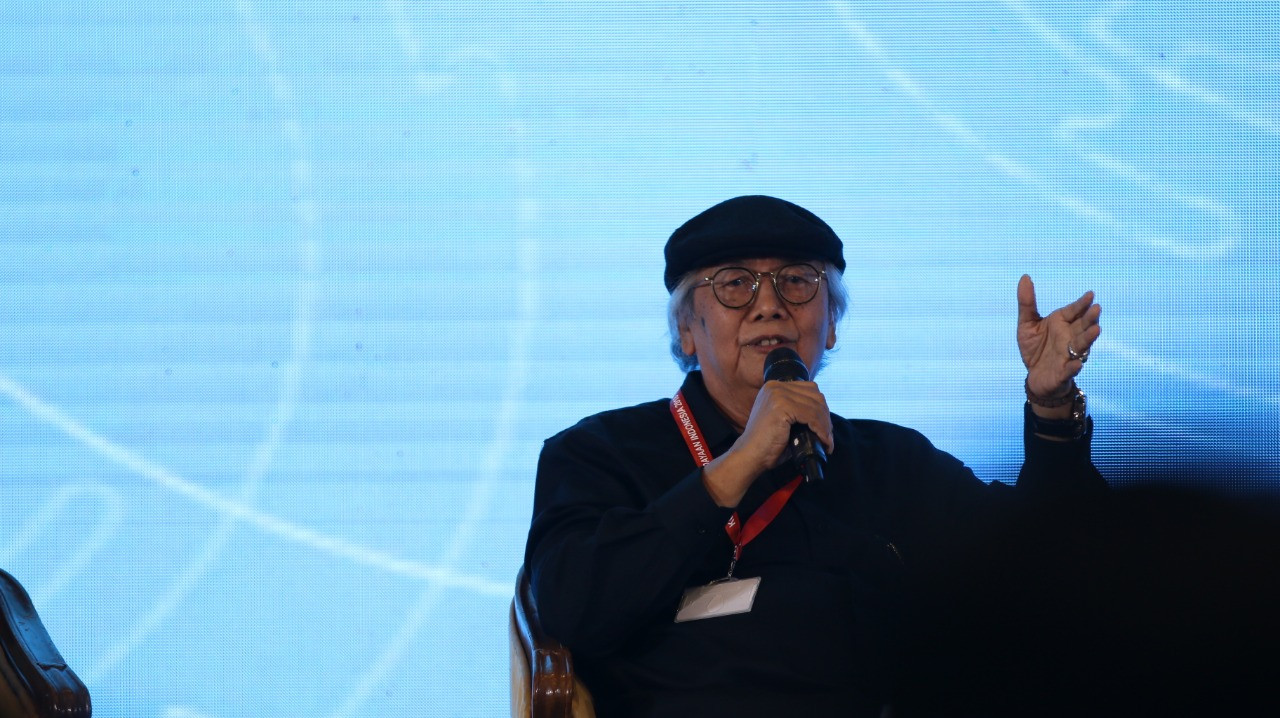'Bianglala Budaya' looks back on a century of Indonesian Cultural Congress
Change Size
 Nunus Supardi, author of "Bianglala Budaya" (Culture Rainbow) speaks at the Indonesian Cultural Congress (KKI) in Jakarta over the weekend. (Courtesy of Education and Culture Ministry/File)
Nunus Supardi, author of "Bianglala Budaya" (Culture Rainbow) speaks at the Indonesian Cultural Congress (KKI) in Jakarta over the weekend. (Courtesy of Education and Culture Ministry/File)
T
he latest edition of Nunus Supardi’s Bianglala Budaya (Culture Rainbow), a book documenting the Indonesian Cultural Congress (KKI), is being released just in time for the event's 100th anniversary.
The congress takes place every five years and the book explores those held between 1918 and 2013, the most recent edition prior to the latest publication. Deemed an important documentation of past congresses, Nunus' book has been present at each event since it was first published in 2003, including in 2008 and 2013.
Speaking at the book’s launch over the weekend, which coincided with the 2018 KKI held at the Education and Culture Ministry in Jakarta, Nunus explained that his writing process had involved gathering documents from various sources, including the Sonobudoyo Museum in Yogyakarta, the H.B Jassin Literature Documentation Center, the National Library, National Archives of Indonesia and the Royal Netherlands Institute of Asian and Caribbean Studies (KITLV) in Jakarta.
"In the book, it can be seen that [each congress] is a spectrum of colorful thoughts about concepts, policies, cultural obligations," Nunus said, explaining the inspiration behind the book’s title.
He further noted that the first congress was held during an important time prior to Indonesia's independence, as it took place between two historical events that were instrumental to the Indonesian national awakening, namely the establishment of political society Budi Utomo in 1908 and the Youth Pledge in 1928.
"This means that along with growing national awareness, scholars at that time also developed a cultural awareness in view for the future," Nunus said.
Read also: Jokowi stresses tolerance at cultural congress conclusion
Also speaking at the event, littérateur Nirwan Ahmad Arsuka said the book comprehensively laid out the history of thought in Indonesia, including on how the Indonesian people viewed their culture in the future.
"This book gathers debates from a number of people, and they debate this because they have shared ideals; they have a vision of Indonesia's future," Nirwan said.
As people continue to share their thoughts on development, the need for the KKI also continues, he added.
Nirwan went on to say that with a different approach implemented this year, which included public participation and not just elite thinkers, as well as gathering empirical data in the period leading up to the congress itself, it is hoped that the results would work toward the establishment and development of culture in Indonesia.
The most recent KKI was held on Dec. 5-9, produced a policy framework titled "Cultural Strategy" that was handed over to President Joko "Jokowi" Widodo at the closing ceremony on Sunday.
The framework was formulated based on data submitted by more than 300 local administrations across the country through discussions that took place starting from March, where each administration identified its cultural strengths, local facilities and infrastructure.
In line with Law No. 5/2017 on cultural development, the strategy will be implemented over the next 20 years in accordance with the laws and the Constitution on a city-wide or regency-wide scale. (wng)









